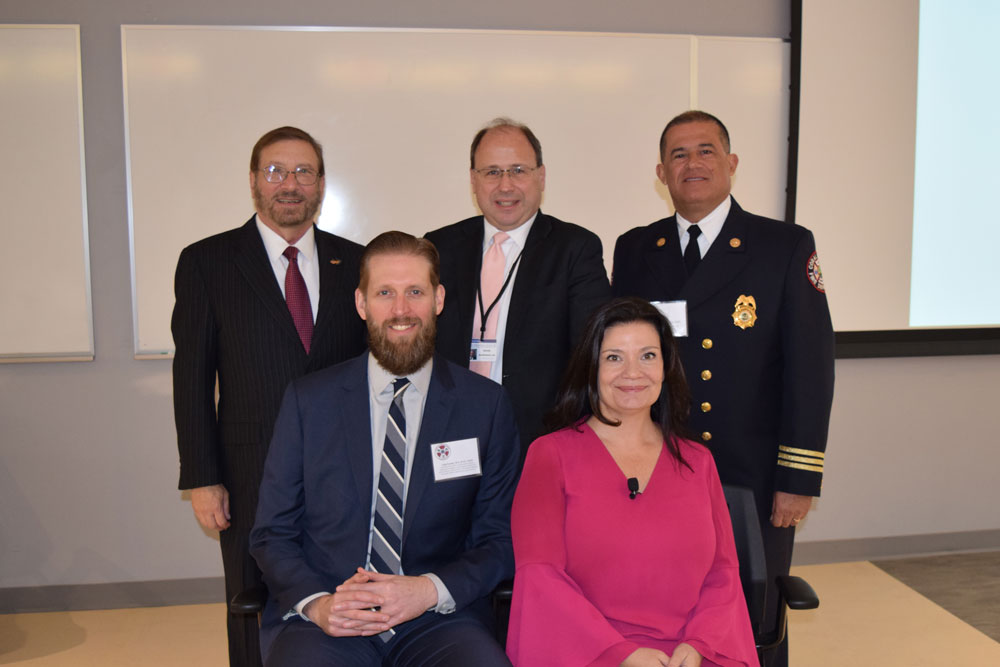Center for Disaster Medicine Hosts “Mass Casualty Events and 'Stop the Bleeding'” Symposium
More than 100 first responders, law enforcement officials, healthcare leaders, business leaders, school officials and members of the community took part in the “Mass Casualty Events and ‘Stop the Bleeding’” symposium presented by the Center for Disaster Medicine on November 13

Experts in the field shared how to prepare for mass casualty events, the evidence and educational approaches to support “Stop the Bleeding,” the latest approaches and lessons learned in the field. It was the first of a quarterly symposium series offered by the Center for Disaster Medicine.
The keynote topic of the day was “Stop the Bleed: Cutting Edge Science, Education, and Outreach Empowering the Public to Save Lives,” presented by Craig Goolsby, M.D., M.Ed., FACEP, seated left, vice chair of education and associate professor, Department of Military and Emergency Medicine, and science director of the National Center for Disaster Medicine and Public Health, Uniformed Services University.
Julianna Lochte, J.D., seated right, business and organizational preparedness manager, American Red Cross, presented “Save A Life: Community and Business Engagement to Manage Bleeding in Emergencies.” She shared the successes of the pilot program in Denver, a joint effort by community partners to provide resources and training to empower individuals to take appropriate action to prepare for, respond to and recover from active threats.
The symposium was capped off by Juan C. Cardona, M.P.A., NREMT-P, CEMSO, standing right, Emergency Medical Services (EMS) division chief and infection control officer, Coral Springs-Parkland Fire Department, who presented “Response to Active Shooter: Event and Lessons Learned from Parkland, Florida, on February 14, 2018.”
“These quarterly symposia which share the latest research, educational approaches and lessons learned from the field, are one of the many ways the Center for Disaster Medicine supports first responders, law enforcement, healthcare institutions, emergency management, schools and businesses in their vital role of preparing for and responding to disasters, terrorism, public health emergencies and mass casualty incidents,” said David S. Markenson, M.D., M.B.A., standing center, medical director and interim director of the Center for Disaster Medicine.
Photo, back from left: Robert W. Amler, M.D., M.B.A., dean of the School of Health Sciences and Practice and vice president for government affairs; David S. Markenson, M.D., M.B.A., medical director and interim director of the Center for Disaster Medicine; and Juan C. Cardona, M.P.A., NREMT-P, CEMSO, EMS division chief and infection control officer, Coral Springs-Parkland Fire Department. From left: Craig Goolsby, M.D., M.Ed., FACEP, vice chair of education and associate professor, Department of Military and Emergency Medicine, and science Director of the National Center for Disaster Medicine and Public Health, Uniformed Services University; and Julianna Lochte, J.D., business and organizational preparedness manager, American Red Cross.
